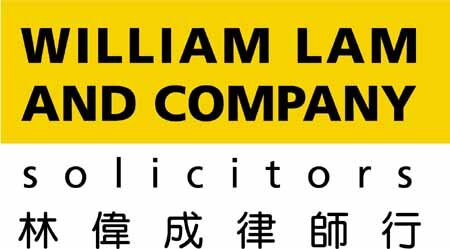Best Antitrust Lawyers in Hong Kong
Share your needs with us, get contacted by law firms.
Free. Takes 2 min.
Or refine your search by selecting a city:
List of the best lawyers in Hong Kong
About Antitrust Law in Hong Kong
Antitrust law in Hong Kong is primarily governed by the Competition Ordinance, which came into force on December 14, 2015. The legislation aims to promote fair competition by regulating anti-competitive conduct among businesses. The Ordinance prohibits three main types of conduct: anti-competitive agreements, abuse of market power, and anti-competitive mergers. Its enforcement is overseen by the Hong Kong Competition Commission and the Competition Tribunal, which ensures that businesses operate fairly and consumers benefit from competitive markets.
Why You May Need a Lawyer
There are several situations where you might need legal assistance in the field of antitrust law in Hong Kong:
- Business Mergers and Acquisitions: Conducting a merger or acquisition may raise antitrust concerns, requiring legal advice to ensure compliance with the Competition Ordinance.
- Allegations of Anti-Competitive Conduct: If your business is accused of engaging in anti-competitive practices, expert legal representation can help navigate complex investigation procedures and potential litigation.
- Compliance Programs: Businesses may seek legal advice to establish robust compliance programs that prevent anti-competitive behavior.
- Market Power Assessments: Determining whether a company holds a dominant position in the market often requires detailed legal and economic analysis.
- Contract Review: Reviewing partnership agreements, distribution, or supply contracts for potential anti-competitive clauses.
Local Laws Overview
The Competition Ordinance is the cornerstone of antitrust regulation in Hong Kong, and it is structured around three main prohibitions:
- The First Conduct Rule: Prohibits agreements or decisions that have the object or effect of preventing, restricting, or distorting competition in Hong Kong.
- The Second Conduct Rule: Targets the abuse of substantial market power by businesses, such as predatory pricing or limiting production to the detriment of consumers.
- The Merger Rule: Regulates merger activities to prevent substantial lessening of competition, although, presently, this rule only applies to the telecommunications sector.
The Hong Kong Competition Commission is tasked with investigating potential breaches and bringing enforcement actions before the Competition Tribunal. Penalties for violating the Competition Ordinance can include financial penalties, orders to cease the infringing conduct, and disqualification of directors.
Frequently Asked Questions
What is the purpose of antitrust laws in Hong Kong?
Antitrust laws aim to maintain market competition, prevent monopolistic practices, and ensure consumers benefit from fair prices and product choices.
How can I determine if my business practices comply with the Competition Ordinance?
Consulting with a legal expert in competition law is essential to assess your business practices, contracts, and strategies for compliance with the Ordinance.
What constitutes a breach of the First Conduct Rule?
Breach occurs through actions like price-fixing, market sharing, bid-rigging, or other agreements that negatively impact competition.
Are there exemptions to the antitrust laws in Hong Kong?
Certain agreements may be exempt if they can demonstrate economic efficiency gains that outweigh any anti-competitive effects.
How does the Competition Commission enforce the Competition Ordinance?
The Commission investigates possible infringements and brings cases to the Competition Tribunal for adjudication and penalties.
What penalties can be imposed for violating antitrust laws?
Penalties can include financial fines, orders to change conducts, and director disqualification for up to five years.
Is there a leniency program for businesses that come forward with anti-competitive conduct?
Yes, businesses can apply for leniency under certain conditions if they admit to anti-competitive conduct and cooperate with investigations.
Can individuals lodge complaints about anti-competitive behavior?
Yes, individuals can report suspected anti-competitive conduct to the Hong Kong Competition Commission.
What sectors are covered by the Merger Rule?
Currently, the Merger Rule applies only to mergers involving the telecommunications sector in Hong Kong.
How long does a competition investigation typically take?
The duration of an investigation can vary depending on the complexity and extent of the issues involved.
Additional Resources
For further guidance and assistance regarding antitrust laws in Hong Kong, consider the following resources:
- Hong Kong Competition Commission: The official body responsible for enforcing the Competition Ordinance.
- Competition Tribunal: Handles cases referred by the Competition Commission regarding breaches of the Ordinance.
- Law Society of Hong Kong: Provides access to legal professionals specializing in competition law.
- Legal Aid Department: Offers legal assistance for individuals eligible for aid in cases involving competition laws.
Next Steps
If you believe you need legal advice on antitrust issues in Hong Kong, consider the following steps:
- Conduct a Preliminary Assessment: Evaluate your situation to identify potential antitrust issues.
- Consult With a Legal Expert: Seek out a lawyer with expertise in competition law to discuss your concerns and explore your options.
- Gather Relevant Information: Compile all relevant documents, agreements, and data pertinent to the issue at hand.
- Determine Compliance Needs: Work with your lawyer to develop compliance strategies or assess existing practices for conformity with antitrust laws.
- Consider Cooperative Solutions: If facing allegations, discuss possible cooperation with the Commission to mitigate penalties or engage in leniency programs.
Lawzana helps you find the best lawyers and law firms in Hong Kong through a curated and pre-screened list of qualified legal professionals. Our platform offers rankings and detailed profiles of attorneys and law firms, allowing you to compare based on practice areas, including Antitrust, experience, and client feedback.
Each profile includes a description of the firm's areas of practice, client reviews, team members and partners, year of establishment, spoken languages, office locations, contact information, social media presence, and any published articles or resources. Most firms on our platform speak English and are experienced in both local and international legal matters.
Get a quote from top-rated law firms in Hong Kong — quickly, securely, and without unnecessary hassle.
Disclaimer:
The information provided on this page is for general informational purposes only and does not constitute legal advice. While we strive to ensure the accuracy and relevance of the content, legal information may change over time, and interpretations of the law can vary. You should always consult with a qualified legal professional for advice specific to your situation.
We disclaim all liability for actions taken or not taken based on the content of this page. If you believe any information is incorrect or outdated, please contact us, and we will review and update it where appropriate.
Browse antitrust law firms by city in Hong Kong
Refine your search by selecting a city.












